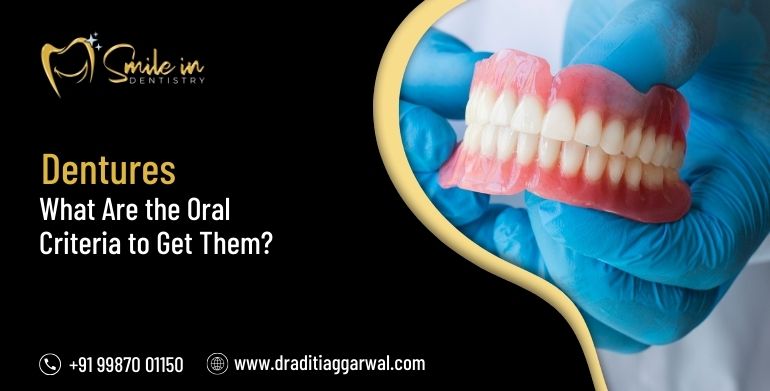
Dentures – What Are The Oral Criteria To Get Them?
When people think of dentures, they often imagine them as a solution for elderly individuals with missing teeth. However, dentures aren't just for seniors—they are a versatile and effective treatment for people of all ages who have lost teeth due to various reasons.
If you want to get yourself a denture, consider visiting Smile in Dentistry. It is important to know whether you qualify for them. Simply losing a tooth doesn't automatically make you a candidate—your oral health, bone structure, and gum condition all play a role.
In this guide, we will explore the criteria for getting dentures, helping you determine if they're the right option for restoring your smile.
Understanding Dentures – What They Actually Do
Before assessing whether you qualify for dentures, it's important to understand what they do and how they help:
- Replace missing teeth to restore a natural smile.
- Support facial muscles to prevent a sunken appearance.
- Improve chewing and speech by restoring oral functionality.
- Prevent further dental issues caused by missing teeth, such as shifting of remaining teeth or bite misalignment.
Depending on the patient's needs, dentures are available in different forms, including full dentures, partial dentures, and implant-supported dentures.
Oral Criteria for Getting Dentures
Not everyone is a candidate for dentures. Here are the key oral health factors determining whether dentures are a suitable treatment option.
1. Missing Multiple Teeth
Dentures are ideal for individuals who have lost several or all of their teeth. Other options like dental bridges or implants might be more suitable if you have just one or two missing teeth.
2. Healthy Gum Tissues
Dentures sit directly on the gums, meaning that healthy gums are crucial for a comfortable fit. If you have gum disease, infections, or severe inflammation, these issues must be treated before getting dentures.
3. Adequate Jawbone Structure
Even though traditional dentures rest on the gums, the jawbone plays a key role in ensuring they fit well. Suppose too much bone has deteriorated due to tooth loss. In that case, additional procedures (like bone grafting) may be required before dentures can be placed.
4. No Untreated Tooth Decay or Infection
Any remaining natural teeth should be free of decay or infection. In some cases, if the remaining teeth are severely damaged, they may need to be extracted before full dentures can be placed.
5. No Severe TMJ Disorders
If you have Temporomandibular Joint (TMJ) disorders, wearing dentures may be challenging due to bite alignment issues. A dentist will assess whether dentures are suitable or if alternative treatments would be better.
Who May Not Be a Suitable Candidate for Dentures?
Denture treatment is a great solution for many, but they may not be the best choice for everyone. Here are some cases where dentures might not be the best option:
- Patients with severe bone loss
- Individuals with persistent gum infections
- People unwilling to maintain denture hygiene
If any of these apply to you, a dentist can recommend alternative treatments like implant-supported dentures, bridges, or full-mouth restoration.
Dentures are excellent for restoring function and aesthetics but require proper evaluation and care. If you have missing teeth and are wondering whether dentures are right for you, visit a qualified dental clinic for expert advice.
For a confident, healthy smile, book an appointment at Smile in Dentistry for the denture treatment and take the first step toward a restored, beautiful smile!